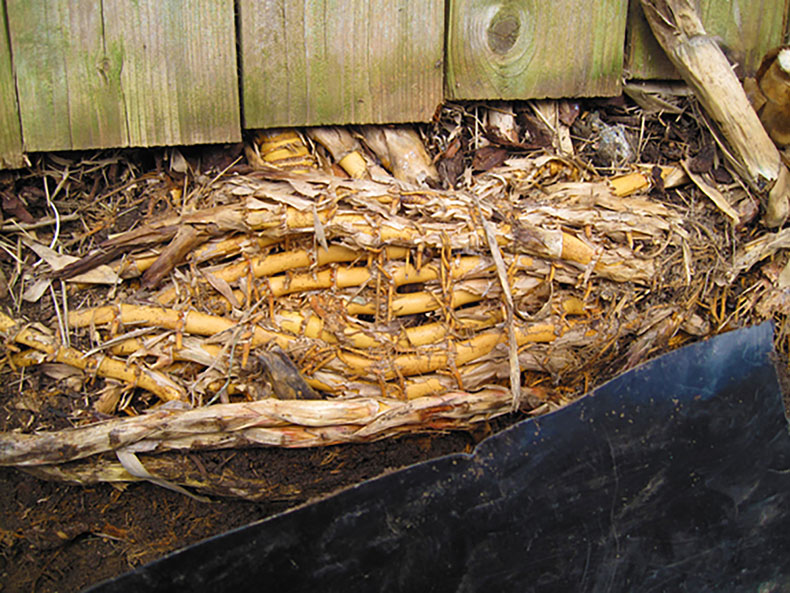Bamboo is a tall, grass-like plant known for its hardiness and is undoubtedly one of the fastest-growing plants in the world. This makes it a problematic plant for most yards, and even more so for most utility companies, including us here at Union Power.
While many people consider bamboo’s versatility, easy growth habits, and privacy screening abilities to be good reasons to grow the plant, there are also a number of downsides worth considering.
Bamboo shoots sprout very vigorously and unpredictably.
This vigorous sprouting can lead to bamboo shoots coming into contact with power lines, potentially leading to costly and dangerous power outages. Unlike trees, bamboo grass cannot be pruned to direct the growth away from power lines but must be eradicated to comply with regulations and reliability goals.
Getting rid of bamboo can take years.
Bamboo is a long-term relationship that should not be entered into lightly. On average, it can take up to three years and vigorous effort to remove unwanted bamboo. Bamboo is a spreading plant, so you can’t just trim it, and it goes away — it has to be removed from the root. Removing bamboo is easier said than done. The first step in eliminating bamboo is to remove all the root mass and rhizomes, which can be a time-consuming and costly service once the plant spreads. Many homeowners with bamboo-loving neighbors complain they can’t get rid of the spreading grass, and no matter how much they dig, the shoots keep coming back.
Getting rid of bamboo may require herbicides.
Chemical herbicides are often necessary for controlling bamboo, but this can be a problem for those trying to maintain organic gardens and avoid herbicide use. Again, this could take years and one application will not solve your bamboo problem.
Bamboo can spread into neighboring yards.
Many homeowners plant bamboo to create a fast-growing privacy screen around their home. Bamboo can spread as quickly as it grows, and it doesn’t respect fences or property lines. Bamboo grows vigorously when adjacent to irrigated lawns and gardens or in low‑lying areas that collect water. Instead of just blocking the view of “nosy neighbors,” you could be creating an unpleasant environment and relationship with your neighbors by planting bamboo. You could also be liable for the cost of any damage to the neighbors’ property caused by your bamboo, and for the cost of its removal from their property.
The right bamboo can be hard to find.
Not all of the more than 1,000 bamboo species are equally invasive, and many homeowners prefer clumping bamboo species over the spreading types — but even clumping species spread — although not as vigorously. It also can be hard to differentiate between the types, and some are mislabeled. Moreover, other similar invasive species are often confused with bamboo, so do your homework!
Bamboo may seem like an attractive garden option, but it poses serious issues for your co-op. The bottom line is, Union Power needs 24/7 access to power lines in order to provide you with safe and reliable service – and we need your help. Please do not plant bamboo in right-of-way areas near power lines, and remember to think about the safety of our staff, you, and your neighbors. If you are considering planting bamboo, please call a member of our Vegetation Management team to discuss your planting ideas at (704) 289-3145 or (800) 922-6840. As always, we thank you for your cooperation in helping us to serve you better.


